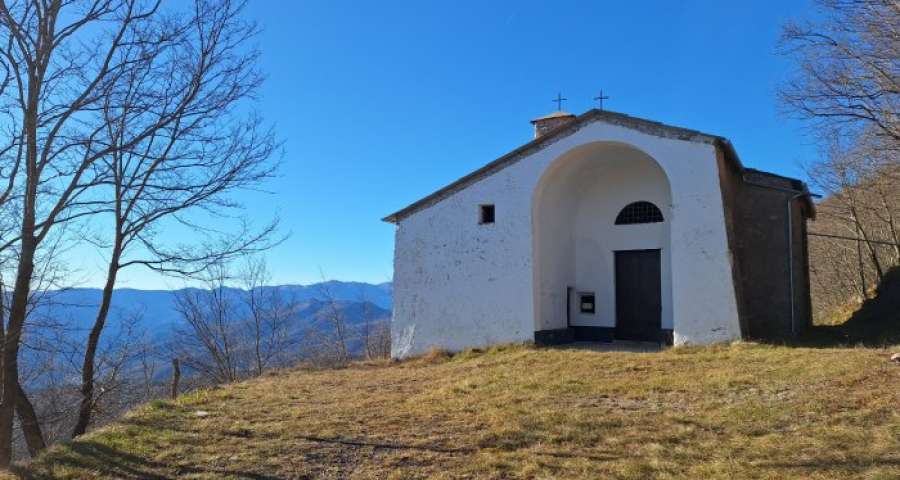Rebirth can be learned /6 - Communities and movements, between the words of the founders and the voice of the new prophets
by Luigino Bruni
published in Città Nuova on 11/07/2024 - From the Città Nuova magazine, no. 2/2024
In spiritual communities and charismatic movements (i.e. arising from a charisma, whether religious or secular), the form taken up by the exercise of one's history, of memory and remembering is important. The most precious and difficult discernment does not concern negative episodes or small words from the past: the crucial art is knowing how to use the true words, the founding episodes of a community's history, including the great words of the founders and the first beloved and venerated witnesses.
In this essential exercise, too, a passage from the Gospel of Luke comes to our aid: «Woe to you, because you build tombs for the prophets, and it was your ancestors who killed them. ...they killed the prophets, and you build their tombs.» (Lk 11:47-48). Jesus’ contemporaries had begun to celebrate and honour the prophets of the past, those who had founded the faith of the people, rediscovering and building up their tombs, which were transformed into authentic shrines and became destinations of popular pilgrimages. For some, this new prophetic devotion could be interpreted as a sign of a new season of appreciation and listening to the word of the prophets, a true conversion: «They killed them; you build».
And instead, here too, Jesus surprises us and unmasks a reality that shows itself opposite to what it appears like - the Gospel is a succession of unveiled realities that show themselves opposite to those that seem obvious to all. And he tells us that celebrating the prophets of the past by honouring their tombs and their memory may contain nothing new: the prophets of the present (including himself and the Baptist) continued to be persecuted and killed while the people were worshipping the tombs of yesterday's prophets.
Honouring the prophets (saints or founders) of yesterday is therefore not a credible sign of a community listening to and esteeming its prophets of today, too. On the contrary, the history of Christian, spiritual and ideal-driven communities often shows exactly the opposite tendency: the more the saints of the past are venerated, the less the prophets of the present are listened to, who, not infrequently, are discredited and persecuted precisely in the name of devotion to the great ones of the past.
Charismatic communities have a continual vital need for prophecy, which is certainly expressed in keeping the founder's charisma alive and present in its entirety, but it is also expressed in recognising, encouraging and not fighting the prophecy present in those people that the Spirit continually sends to the communities, especially in the generations following that of the first founders.
A charismatic community does not live today simply by remembering yesterday's prophecy, nor only by updating yesterday's charisma for today. All of this is necessary, but it is not sufficient for a community that wants to keep itself alive and life-giving and thus to continue to attract new vocations and young people. The sufficient condition is listening to present prophecy, which presupposes that the people of today who by gift and task incorporate a prophetic dimension are neither rejected nor discouraged, but welcomed and valued.
A charisma is not a diamond that made an appearance on earth once and for all and must only be kept in a glass case so that it can continue to shine. A charisma is a seed that continues to give its flowers and fruit in every season - charismas always require a declination in the present time. Jesus has remained alive in the Church not only because he is treasured and venerated, not only because of his real presence in the community, but because the Spirit has sent many charismas to the Church over the centuries.
But recognising today's prophets is not at all easy, because the real prophets are generally neither recognised nor heard. Instead, communities love false prophets because, as ‘prophets by profession’ they specialise in telling the leaders and the average sensibility of the community only what they like to hear in order to reinforce illusions and self-deceptions (that are very common in times of crisis).
The passage from Luke tells us something more, too: that today's prophets are silenced and marginalised just as the celebration of yesterday's prophets grows. A concrete way of doing this is to use the words of the founders or great men and women of the past to silence the true prophetic words of today, thinking, often in good faith, that the new prophecy that is expressed in today's community competes with, diminishes or even fights the prophecy of yesterday's founders. And so texts, oral testimonies, and yesterday's moral lessons are used to counter today's words and moral lessons that would be, instead, the only real cure for the crisis that the community is experiencing.
Photo credits: Fauxels’ images from Pexels













